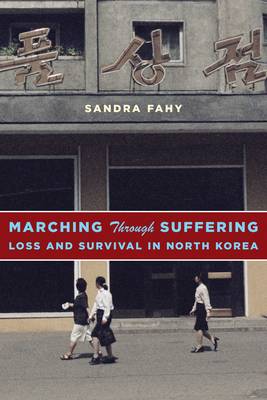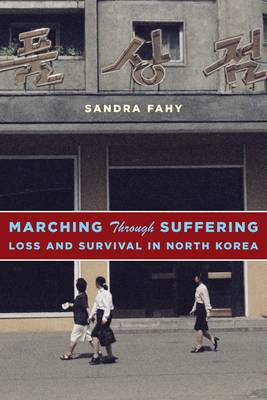
En raison d'une grêve chez bpost, votre commande pourrait être retardée. Vous avez besoin d’un livre rapidement ? Nos magasins vous accueillent à bras ouverts !
- Retrait gratuit dans votre magasin Club
- 7.000.000 titres dans notre catalogue
- Payer en toute sécurité
- Toujours un magasin près de chez vous
En raison de la grêve chez bpost, votre commande pourrait être retardée. Vous avez besoin d’un livre rapidement ? Nos magasins vous accueillent à bras ouverts !
- Retrait gratuit dans votre magasin Club
- 7.000.0000 titres dans notre catalogue
- Payer en toute sécurité
- Toujours un magasin près de chez vous
Description
Marching Through Suffering is a deeply personal portrait of the ravages of famine and totalitarian politics in modern North Korea since the 1990s. Featuring interviews with more than thirty North Koreans who defected to Seoul and Tokyo, the book explores the subjective experience of the nation's famine and its citizens' social and psychological strategies for coping with the regime.
These oral testimonies show how ordinary North Koreans, from farmers and soldiers to students and diplomats, framed the mounting struggles and deaths surrounding them as the famine progressed. Following the development of the disaster, North Koreans deployed complex discursive strategies to rationalize the horror and hardship in their lives, practices that maintained citizens' loyalty to the regime during the famine and continue to sustain its rule today. Casting North Koreans as a diverse people with a vast capacity for adaptation rather than as a monolithic entity passively enduring oppression, Marching Through Suffering positions personal history as key to the interpretation of political violence.Spécifications
Parties prenantes
- Auteur(s) :
- Editeur:
Contenu
- Nombre de pages :
- 272
- Langue:
- Anglais
- Collection :
Caractéristiques
- EAN:
- 9780231171359
- Date de parution :
- 18-12-18
- Format:
- Livre broché
- Format numérique:
- Trade paperback (VS)
- Dimensions :
- 140 mm x 216 mm
- Poids :
- 362 g

Les avis
Nous publions uniquement les avis qui respectent les conditions requises. Consultez nos conditions pour les avis.






